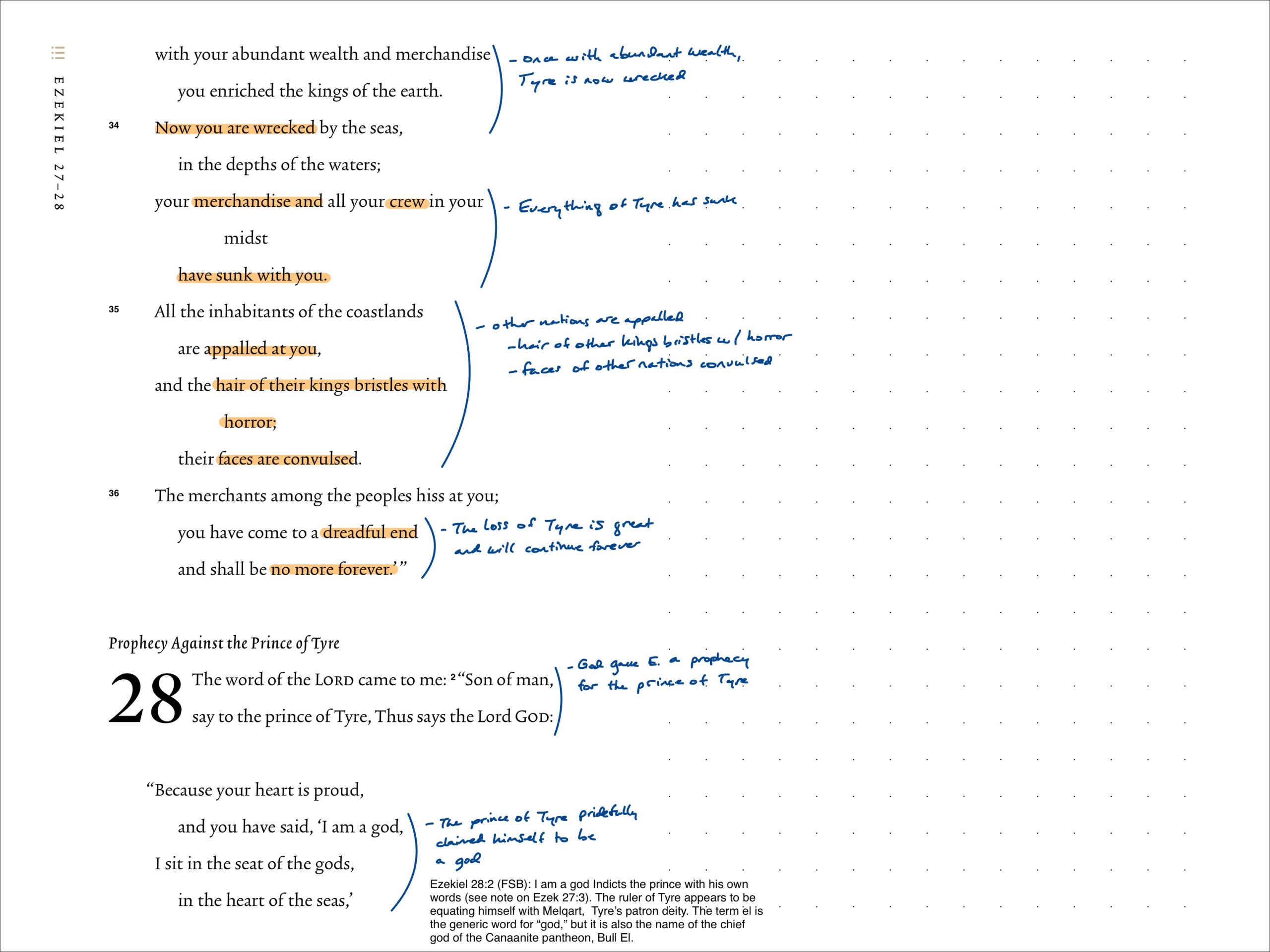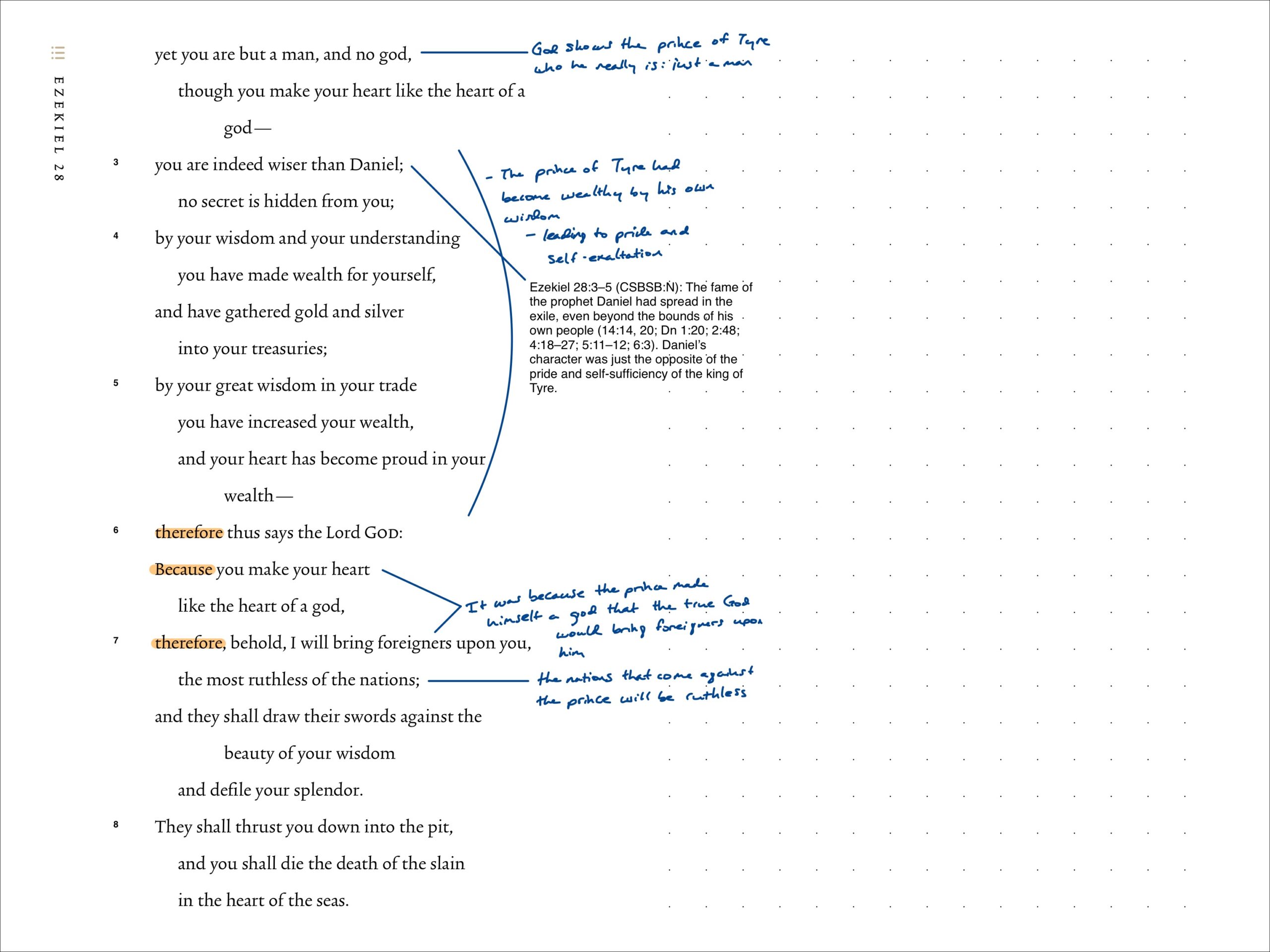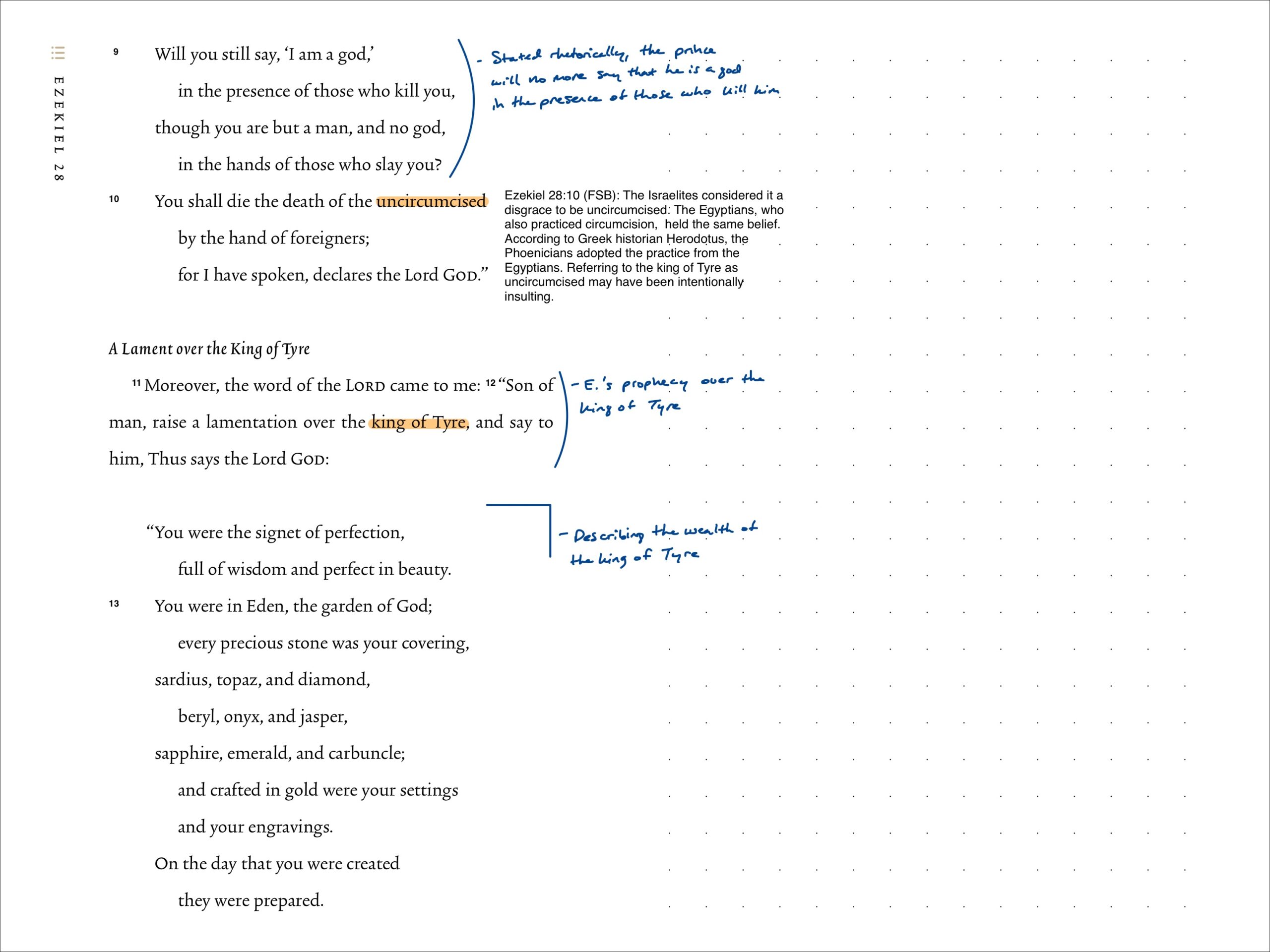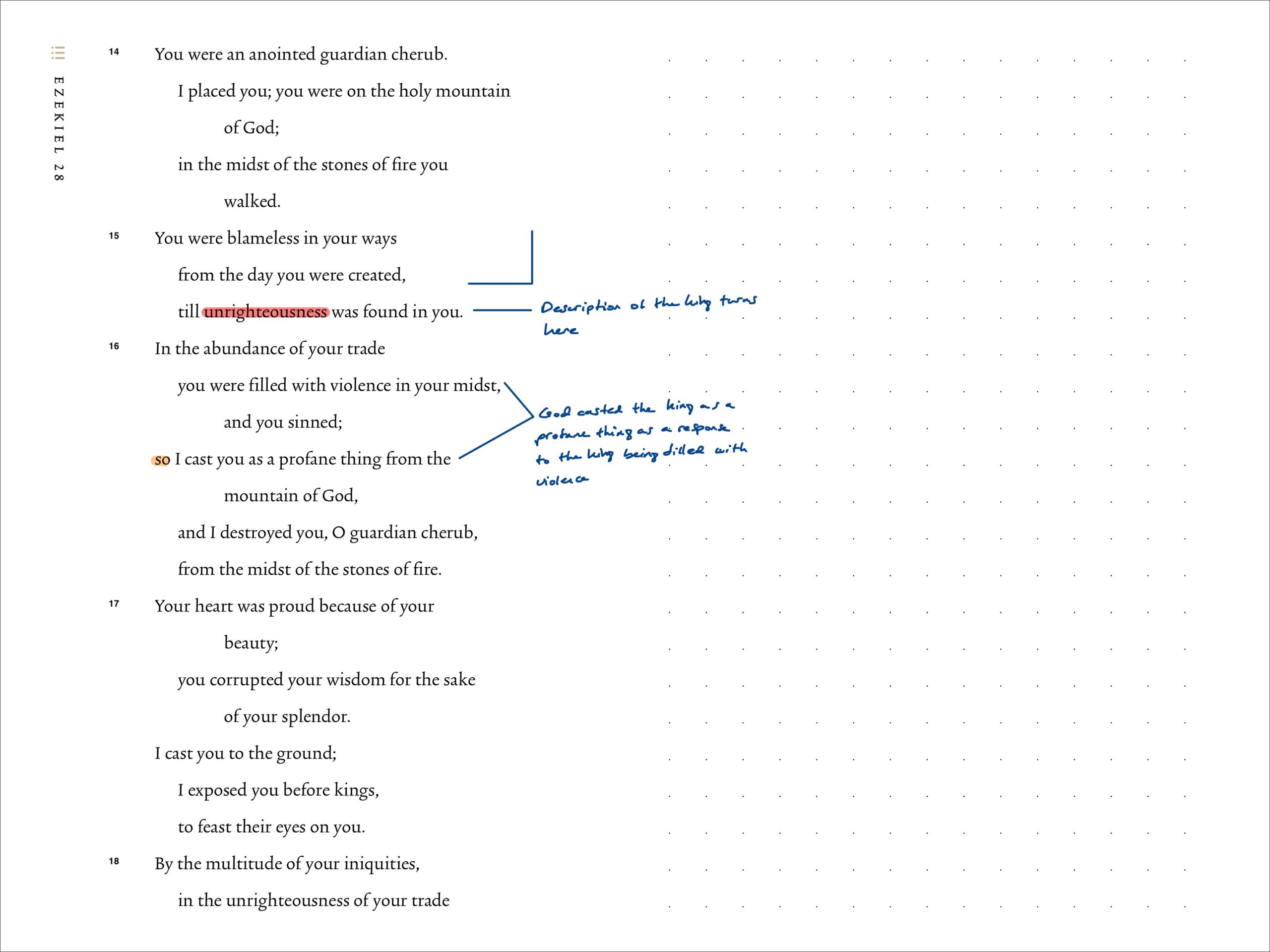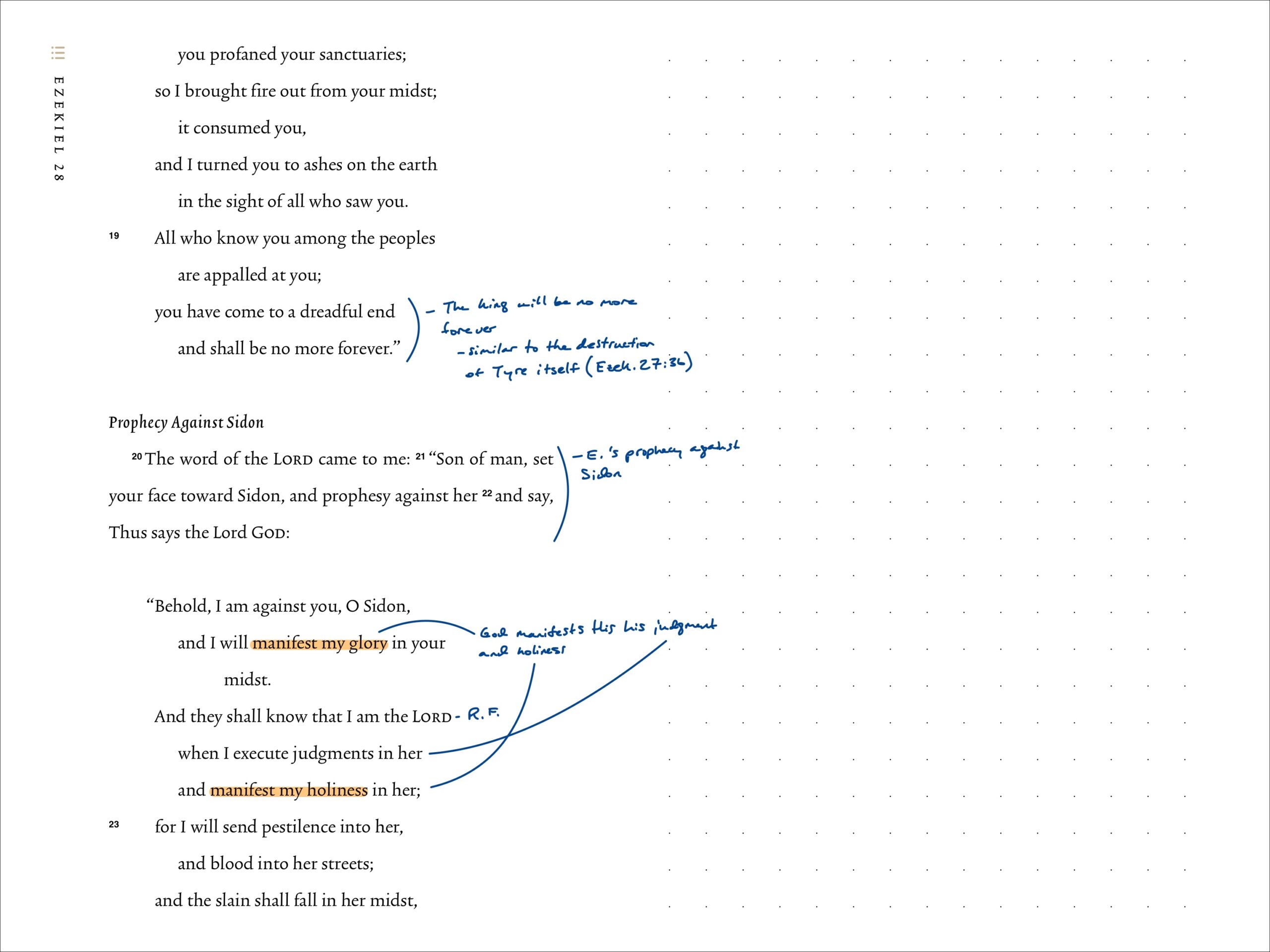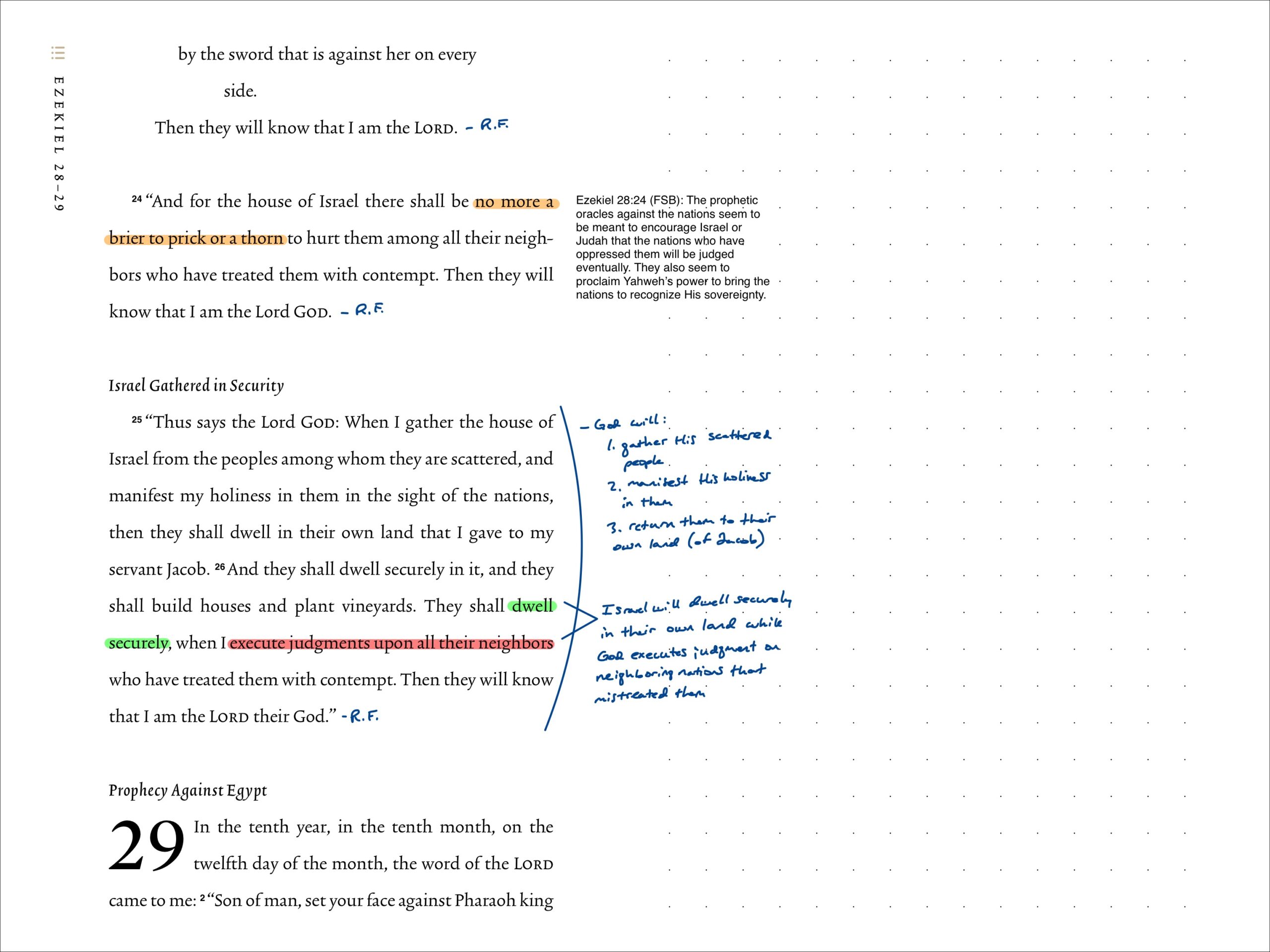| Date | Version | Reading Plan |
|---|---|---|
| @September 18, 2023 | ESV (2016) | ESV Prophets Plan 2023 |
Pericopes
- Prophecy Against the Prince of Tyre
- A Lament over the King of Tyre
- Prophecy Against Sidon
- Israel Gathered in Security
Notes
The chapter opens with the word of the LORD coming to Ezekiel to prophesy against the prince of Tyre. The prince indicted himself with his own words, “I am a god” (Ezek. 28:2), who appears to be equating himself with Melqart, Tyre’s patron deity. The term “el” is the generic word for “god”, but is also the name of the chief god of the Canaanite pantheon, Bull El.
In Ezek. 28:2b-10, God through Ezekiel shows that the prince of Tyre is no god but a man (Ezek. 28:2b), though he had become wealthy by his own wisdom. His wisdom is compared to the prophet Daniel (Ezek. 28:3), whose fame had spread beyond the bounds of his own people (Ezek. 14:14; Dan. 1:20; Dan. 2:48, etc.). However, Daniel’s character was just the pride and self-sufficiency of the prince of Tyre. It was because of his making himself a god that God would bring foreigners and ruthless nations upon him (Ezek. 28:7). The prince of Tyre would “die the death of the uncircumcised” (Ezek. 28:10), a reference that would have been insulting.
Ezek. 28:11-19 represents another word that came to Ezekiel to “raise a lamentation over the king of Tyre” (Ezek. 28:11). The king’s wealth is described in poetic form, that he was “in Eden, the garden of God” and “every precious stone was his covering” (Ezek. 28:13). Things shift at Ezek. 28:15, where the king’s blamelessness had carried him until unrighteousness was found in him. God judged the king by casting him “as a profane thing from the mountain God” (Ezek. 28:16). God would bring him to a dreadful end to “be no more forever” (Ezek. 28:19), using the same words from Ezek. 27:36 regarding the destruction of Tyre.
In Ezek. 28:20-24, the word came to Ezekiel again to prophesy against Sidon, a seacoast city near Tyre and prominent in Phoenicia. God declared Himself against Sidon, saying that He would “manifest my glory” and “manifest my holiness” in executing judgments against them (Ezek. 28:22). God would send “pestilence into her”, “blood into her streets” and “the slain shall fall in her midst” (Ezek. 28:23). This will alleviate Israel from having a “brier to prick or a thorn to hurt them” (Ezek. 28:24). In hearing this, the Israelites would have been encouraged in the Lord’s sovereignty and that those who oppressed them would eventually be judged.
The final section (Ezek. 28:25-26), is a prophesy of the gathering of the Israelites “from the peoples among whom they are scattered” (Ezek. 28:25). God would: 1) gather His scatted people, 2) manifest His holiness in them and 3) return them to their own land. Israel will “dwell securely” when God executes judgement on the neighboring nations who had treated them with contempt. In this, they will come to know that God is LORD (Ezek. 28:26)
Application
Tyre’s prosperity gave way to her prince and king being filled with pride. The prince claimed to be a god and her king was unrighteous and filled with violence (Ezek. 28:15-16). They had become wealthy through their own wisdom and understanding and were yielding the unhealthy fruit of those who obtain prosperity apart from acknowledging God.
A couple of things stand out in this. First, that worldly success can be achieved through our own wisdom and understanding. It comes as no surprise that there are many who, through their own giftings, amass great wealth and recognition. This may seem worthy of our striving until or unless we view these endeavors from an eternal perspective. In the greater scheme, there will be no long-standing blessing isolated from the God of all wisdom.
This leads into the second item which is where (or from Whom) we are to draw our wisdom. Proverbs 3:5 says, “Trust in the LORD with all your heart, and do not lean on your own understanding.” It does not say “some”, it does not say “a portion”…it says “all”. And by forgoing our own wisdom in lieu of His, we may (and likely will) experience discomfort, financial instability or fewer material possessions. But by trusting in Him, we lay up for ourselves a treasure in the heavens that does not fail, where no thief approaches and no moth destroys.
Scripture Journal Notes
Commentaries & Resources Used
- ESV Study Bible. (Wheaton, IL: Crossway, 2008)
- Faithlife Study Bible (Lexham Press, 2016)
- Believer’s Bible Commentary (Thomas Nelson, 2016)
- CSB Study Bible Notes (Holman Bible Publishers, 2017)
- Matthew Henry’s Commentary on the Whole Bible (Guardian Press, 1976)
- The Bible: A Reader’s Guide (Sterling Publishing, 2011)
- The Infographic Bible (Zondervan, 2018)
- ESV Digital Scripture Journal (Crossway, 2019)
